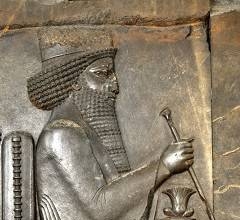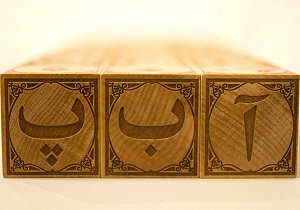Etymology of the word sultan and king of kings – شاه – Emperor
شاه It is an old word that is said and written in the same way in other Iranian languages. This word has been king in Pahlavi language as well. This word in ancient Persian and Avestan was in the form of xšathra, which with the passage of time has become our simpler form in the current Persian language..
The root of this word may be taken from the Avestan word _xši, which means to rule. Another theory is that it is derived from the word "Asha" in ancient literature (Pahlavi and ancient Persian and in the lines of Debir's religion) It means the right way (It means the one who goes to the right path) be.
Empire (Also the emperor and empress), Shahriar, Kasri and Khosrow are all names used in Persian for Iranian kings.. The Arabic participle of the word "Khosro" is used specifically in the case of the Naushin Rawan participle of the Sassanid kings.. Khosrow is also used for Khosrow Parviz, one of the Sassanid kings.
The word "King" also comes from Pahlavi Pahlavi Patakhshai or Patakhshah, which in ancient Persian is Pati Khashai Thieh or Pati Khashai, which means; He was the one who commanded the authority. It is mentioned in the decisive proof about the word king: "It is an ancient Persian name composed of pad and shah, and pad means guard, guard, guard, riding, holding the throne and aurang, and shah means origin, god, son-in-law, and everything that is better and bigger than the likes and equals. be".
Although the words Shahneshah and Shahneshahi have been used a lot in the Islamic era and other periods of Iran's history, but except in the Sassanid era (:Concept) It was not correct. This word is not like Farnami in the Sasanian era (:a title) Ceremonial and pointless, but it is used to recount a special system of rulership that was specific to the Sassanid government, and it was motivated by the fact that Ardeshir, the founder of that government, because all the rulers who ruled a part of Iran during the Parthian period, and Most of them called themselves the king, he brought them under a command and provided the national and political solidarity of Iran. (:Region) They were and had honor and respect, he still called them kings and did not deprive them of their authority. In this way, the Sassanid kings called themselves Shahanshah or Shahneshah; And when we talk about the imperial system, we mean such a system that existed only in that era.
Source
King's vocabulary, Dehkhoda's dictionary
Iranian history and culture, p. 241
King of Kings (In its Iranian tradition: the emperor) It is a title that has been used by several kingdoms throughout history (Usually by empires that are unofficially considered great powers.), and in many of these cases, the mentioned literary title literally means "King of Kings", that is, a high and high-ranking kingdom that other kings and rulers of royal systems were his servants, subjects, and tributaries, or in the position of his patronage. have been. This term, especially in Semitic languages, according to a customary rule and method (And usually not in a correct and precise way), has been used as an emperor.
The first recorded writings in which this term is consistently used are related to Iranian kings in the Persian Empire. [It means the Achaemenid Empire] It has been known that the term "empire" has been applied and this is due to the fact that the kings of Iran ruled in the form of being dominated by other kings and other kings were under their influence and domination in the provinces and governorates of the government, or various satrapies, and this fact This has caused the kings of Iran to be referred to as Shah Shahan more than other kings. But at the same time, it is also generally accepted that the Iranians wrote and used this title, with an implicit concept of the connection of their kings with the origin of divinity, and after the Achaemenids and in the Iranian Sassanid Empire, an obvious spiritual interpretation. From this title, the king has been given the role of a spiritual leader in addition to his royal role [Referring to the concept of the famous theory: Farah Yazidi]. In this case, there is a well-known story that tells of a Zoroastrian sage who travels to the holy lands to announce the accession of the future kings in the Persian Empire and to welcome the new kings.. His journey is good news, congratulations and welcome to the kingdom, which was supposed to herald the establishment of a spiritual and religious monarchy with the title, King of Kings.. (This story needs more explanation)
Sultan
In the Aryan language, the word sultan is soltān (Sol = sun + tan = radiation) which the Arab writes as sultan means the sun/ray of the sun and for this reason Shams = sun in the Quran is the symbol of Prophet Muhammad. The kings of Iran also saw the image of the sun on their flag with this meaning. Sol, the first part of the word sultan, is the Latin sul or the English sun, which is the same as the word su (To the eye-to the light) and flickering (flashing light) In Persian, it is the same family and the second part of it with the word tanor (Lots of heat and light) and you (Bathroom fireplace) Tan (= fire) In Welsh it is cognate. It is known that the name Sultan is given to both girls and boys in Iran, but Zlatan is a boy's name in Europe, meaning gold. (Shining) Is. From the word sultan, the Arab derived the supposed root of salat and then forged the words sultans, sultanate, dominion, and dominion..
Emperor (In Old French:Emperor and in Latin:Emperor) to rule (Man) It is said to rule an empire. The queen or empress is also called a woman who commands the empire; This woman may be the wife of a king (Queen) be or independently (empress) to rule. Emperors typically have more honor and privilege than kings.
The first person in history to hold the title of emperor was Octavius Augustus, the adopted son of Julius Caesar, who achieved absolute Roman command by breaking the alliance between Mark Antony and Cleopatra.. So the Roman Senate gave him the title of Augustus, which means the great, and he himself chose the title of emperor, which at that time meant commander-in-chief.. After that, the order of Roman poets was called emperor due to their military image, and because they were from Julius Caesar's family until Emperor Nero, they were called Caesar until the reign of Dioclesin at the end of the third century and the beginning of the fourth century AD and with new divisions. Administratively, the three positions of emperor, Augustus, and Caesar were separated, and the position of Caesar became inferior to the emperor and Augustus, and one emperor ruled over several Augustus and Caesars.. This hierarchy was strictly observed in the Eastern Roman administrative system. The last order of Western Roman novelists, although they are usually called emperors, but in fact, they were the Caesars and sometimes the Augustus that the Eastern Roman emperors introduced to manage the west of the empire and kept the right of supremacy for themselves.. The last Western Roman emperor was Romulus Augustus, who was deposed in 476 AD, and the last Eastern Roman emperor was Constantine XI Palaeologos, who died in 1453 AD in the defense of Constantinople..
World War I is known as the war of death of empires, because several world empires were destroyed in this war. Then the last remaining emperors in the world after the Second World War, George VI, the King of Great Britain and the Emperor of India, then Mohammad Reza Pahlavi, the Shah of Iran, Haile Selassie, the Emperor of Ethiopia (and claiming the inheritance of Suleiman and Balqis) And finally, there was Hirohito, the Emperor of Japan, who is currently the only Japan with imperial status.
superiority over other rulers
The emperor and the king are both rulers. In Europe, "Emperor" and "Empress" are considered as superior rulers. First, the emperors were given a higher priority rank in front of the kings in diplomatic relations. Right now, priority is given to the rank of head of state. Persian equivalent of emperor, shahanshah (king of kings) and in this sense, the superiority of the emperor over the king (king) It could be that the emperor (As the emperor)He rules over several kings. The position of the empire in Europe has had such a structure and is precisely equivalent to the emperor (king of kings) have been. The kings of ancient Iran such as the Achaemenids, Parthians and Sassanians, the imperial position (Not the kingdom) They had and in the western texts, they are called emperors. In contemporary Iran as well, the Pahlavi kings (Unlike the Qajar kings) They had an imperial position and outside of Iran, they were called and written as "Emperor", although logically they should have been called a king because they did not have a subordinate king.. It should be mentioned that this logical objection was discussed in the National Council of Iran at the beginning of the Pahlavi era, especially because today's Iran is a unified unit with a government and is not a combination of several countries and the recognition of the title of emperor (Emperor) For the ruler of Iran, it is not only a cause for shock and pride, but it is also an introduction to the recognition of Iran's many divisions. But finally, the title of Shahneshah (Emperor) It was recognized for the rulers of Iran during the Pahlavi era.





